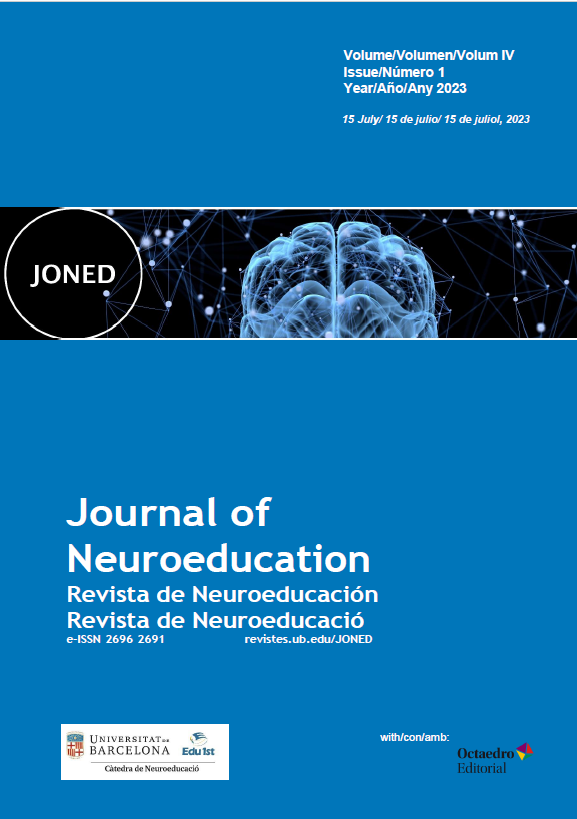Trauma por pandemia y postpandemia ante el virus COVID-19 y sus secuelas psicológicas. Una experiencia de intervención escolar para favorecer la regulación emocional de los niños y adolescentes
Apoyo emocional a los niños y adolescentes en la escuela en época de pandemia
DOI:
https://doi.org/10.1344/joned.v4i1.42170Keywords:
emotional regulation, trauma, students, techniques, safe place, attachment, poolyvagal theoryAbstract
The objective of this article is to present an educational practice aimed at promoting emotional regulation related to trauma and the psychological safety of students in Primary Education (5th and 6th) and Secondary Education in four private-subsidized schools in the province of Gipuzkoa (Spain) The epistemological framework on which the intervention is based is the polyvagal theory of Porges and the attachment theory. Through a series of sessions with school counselors and tutors, they are provided with psychoeducational knowledge and specific guidance to promote emotional regulation in students, using techniques such as rooting, calming, providing security, and narrating and postponing the investigation. The results obtained point to a general assessment by teachers of the intervention experience as positive (80%), 16% as very positive and 4% as unnecessary. The emotional modulation of the students in the classroom is revealed, on the other hand, fundamental and the results point to a subjective experience of greater well-being and improvement of health and relationships. In the discussion it is suggested that experiences such as the one described, despite their limitations, are promising in their results to improve the health and quality of life of the students and make the school experience a safe place, essential for children and teenagers can study and perform academically. Proposals of this type open the door to models of conceptualization and management of schools as educational spaces sensitive to trauma, in which the entire school community is implicated and involved with students who have suffered traumatic experiences in their lives.
Downloads
Downloads
Published
Issue
Section
License
Copyright (c) 2023 José Luis Gonzalo Marrodán

This work is licensed under a Creative Commons Attribution-NonCommercial 4.0 International License.
The authors who publish in this journal agree to the following terms:
a. Authors retain copyright and grant the journal the right of first publication
b. Texts will be published under a Creative Commons Attribution Non Commercial License that allows others to share the work, provided they include an acknowledgement of the work’s authorship, its initial publication in this journal and the terms of the license, and not for commercial use.



